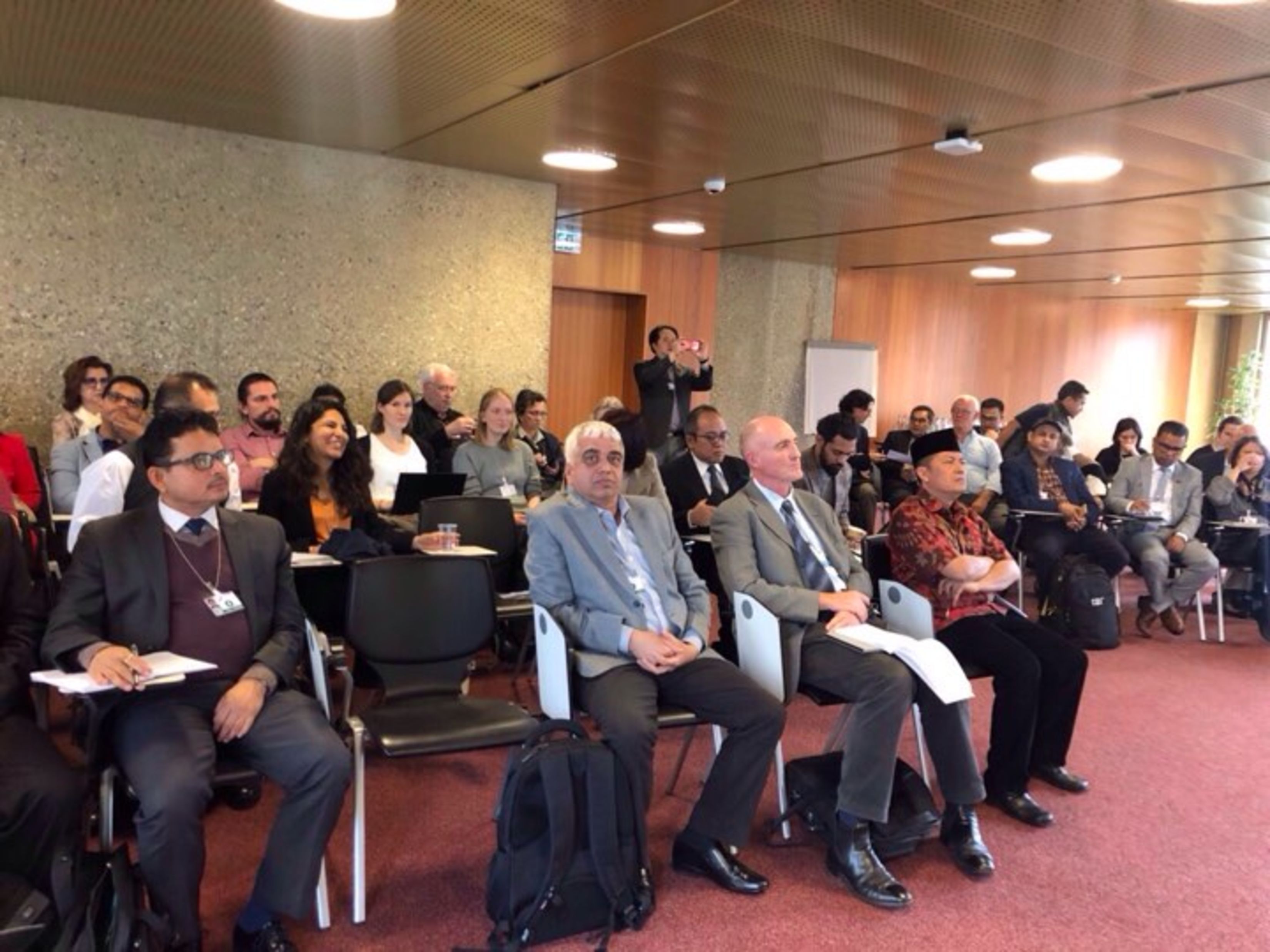GPDRR 2019: Productive Engagements Continue in Geneva

GPDRR 2019: Productive Engagements Continue in Geneva
Geneva, Switzerland - Day 2 of the highly anticipated sixth session of the Global Platform for Disaster Risk Reduction (GPDRR) unfolded on May 14th, 2019, marking another day of engaging discussions and fruitful interactions among participants from around the world. Organized by the United Nations Office for Disaster Risk Reduction (UNDRR) and hosted by the Government of Switzerland, the biennial event has attracted a diverse range of stakeholders eager to share insights and collaborate on advancing disaster risk reduction efforts.
DPNet-Nepal has been at the forefront of coordinating Nepal's participation in GPDRR 2019, actively working towards ensuring the nation's meaningful involvement in the event, which takes place from May 13th to May 17th. A high-level delegation from Nepal, including the Secretary of the Ministry of Home Affairs and the CEO of the National Reconstruction Authority (NRA), has arrived in Geneva to represent the country's interests. Mr. Surya Bahadur Thapa, Chairperson of DPNet-Nepal, is diligently coordinating the team both on-site in Geneva and through the dedicated Viber Group established by DPNet-Nepal.
On the second day of GPDRR, May 14, Mr. Sushil Gyawali, CEO of the National Reconstruction Authority, Nepal, held a meeting with Ms. Asako Okai, Director of the UNDP Crisis Bureau, to discuss matters related to inclusivity, disaster risk reduction, the Sendai Framework for Disaster Risk Reduction (SFDRR), and further collaboration with UNDP in post-earthquake recovery and reconstruction efforts.
In another notable event, Mr. Bamshi Kumar Acharya, Under Secretary of the Ministry of Home Affairs, participated as a panelist in the Knowledge Exchange event titled "Fostering Practical Coherence for Resilience." During the panel discussion, Mr. Acharya emphasized Nepal's pride in hosting the 14th Meeting of the Regional Consultative Committee on Disaster Management. This committee, comprising National Disaster Management Offices (NDMOs) from 26 member countries in the Asia-Pacific region, serves as a non-binding regional mechanism for peer advocacy and exchange of expertise in disaster and climate risk management. The meeting provided an opportunity for member countries to showcase best practices in achieving coherence across global frameworks and explore ways to translate policies and frameworks into coherent practices. Key challenges identified included capacity gaps in implementation, weak linkages between data and policy, and mismatches between local government plans and national budgets.
Member states recognize the critical importance of successfully implementing all global agendas to achieve sustainable development. Consequently, they acknowledge that synergies between these agendas present opportunities for coherent implementation and sustainable development. Neglecting the integration of disaster risk management (DRM) in urban planning, infrastructure development, public investments, and other key sectors would lead to missed opportunities that hinder progress toward sustainable development. Therefore, enhanced coordination among government institutions, the private sector, civil society organizations, and citizens is a crucial requirement for coherent implementation of global agendas.
The 14th RCC Meeting culminated in the adoption of the Kathmandu Statement, urging Asian and Pacific countries to enhance coherence across policies, institutions, goals, indicators, and monitoring systems for implementing key global frameworks on disaster risk reduction and sustainable development. Additionally, member states called upon development partners to support and invest in regional efforts aimed at achieving coherence.
To disseminate information on key action points from countries in Asia and the Pacific, a Policy Brief on coherence was developed and published, serving as a valuable resource for advancing coherence in disaster risk reduction and sustainable development.
In recognition of outstanding efforts, Aarughat Rural Municipality in Gorkha, for initiating the Municipal Revolving Fund to support earthquake-affected households, and Mr. Pallav Pant, President of the Sarokar Foundation, for conducting fire safety programs for persons with disabilities in Nepal, both have been nominated for the prestigious United Nations Sasakawa Award for disaster risk reduction. From among the 61 nominees, the final three awardees will be announced on May 16th, 2019, at GPDRR. DPNet-Nepal extends its best wishes to the nominees representing Nepal.
As GPDRR 2019 progresses, participants remain committed to fostering collaboration, sharing best practices, and furthering the global agenda of building resilience and reducing disaster risks. The event continues to provide a platform for knowledge exchange and innovative approaches, propelling the world closer to a safer and more resilient future.











